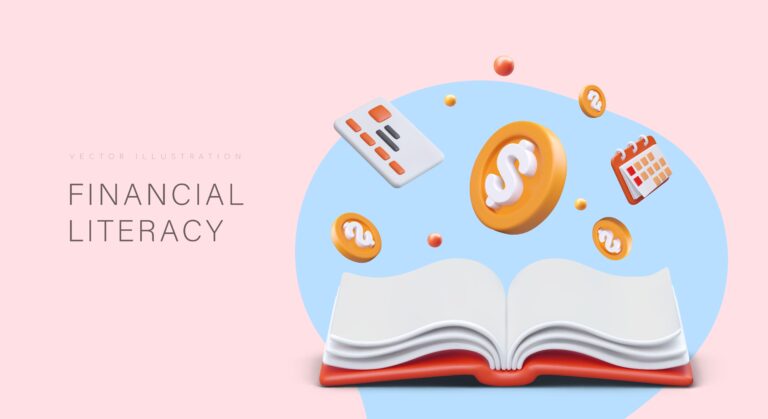
-
Marcia Philosophos
- May 6, 2024
- 8:09 pm
In the ever-evolving landscape of education, one crucial aspect often overlooked is financial literacy. As secondary students embark on their journey towards adulthood, equipping them with the knowledge and skills to navigate the complexities of personal finance is paramount. Far beyond mere arithmetic, financial literacy encompasses budgeting, saving, investing, and understanding the intricacies of credit and debt. Here’s why nurturing financial literacy among secondary students is essential and how educators and parents can play a pivotal role in this endeavor.
Table of Contents
ToggleUnderstanding the Importance of Financial Literacy
Financial literacy isn’t just about making ends meet; it’s about empowering individuals to make informed financial decisions that resonate throughout their lives. In today’s society, where easy credit and complex financial products abound, the ability to decipher financial jargon and make prudent choices is more critical than ever. By instilling financial literacy early on, secondary students can cultivate lifelong habits of fiscal responsibility and resilience, setting them on the path towards financial well-being.
The Role of Education in Fostering Financial Literacy
Education serves as the cornerstone of financial literacy. Integrating financial literacy into the secondary school curriculum provides students with the foundational knowledge and skills they need to navigate the financial landscape confidently. Interactive lessons on budgeting, saving, and investing empower students to apply theoretical concepts to real-world scenarios, fostering a deeper understanding of financial principles.
Moreover, incorporating experiential learning opportunities, such as simulations and games, can make the learning process engaging and memorable. By immersing students in simulated financial scenarios, educators can cultivate practical skills while fostering critical thinking and decision-making abilities.
Empowering Parents as Financial Mentors
While education plays a vital role, the influence of parents cannot be overstated. Parents serve as the first and most enduring financial role models for their children. By openly discussing financial matters and involving children in household financial decisions, parents can demystify money management and impart valuable lessons about earning, spending, and saving.
Encouraging savings habits through allowances or part-time employment and involving children in setting financial goals instills a sense of ownership and responsibility. Furthermore, leveraging everyday experiences, such as grocery shopping or paying bills, as teachable moments helps reinforce financial concepts in a relatable context.
Navigating the Digital Landscape
In an increasingly digital world, proficiency in online banking, digital payments, and cybersecurity is indispensable. Teaching students how to safeguard their personal information, recognize online scams, and utilize digital tools for financial management is crucial for their financial well-being in the digital age.
Integrating technology into financial literacy education not only enhances engagement but also equips students with the skills necessary to thrive in an interconnected world. Interactive online platforms, such as Pointful Education’s Personal Finance courses, and educational apps can supplement traditional teaching methods, providing students with hands-on experience in managing their finances digitally.
Conclusion
Preparing secondary students for their financial future requires a concerted effort from educators, parents, and policymakers alike. By prioritizing financial literacy education, fostering collaboration between schools and families, and embracing innovative teaching methodologies, we can empower the next generation to navigate the complexities of personal finance with confidence and competence. Together, let us equip our youth with the knowledge and skills they need to build a brighter financial future for themselves and generations to come.y.
Check out our Pointful Education blog today to learn more about the best strategies to prepare your students for high school, college, and beyond.
